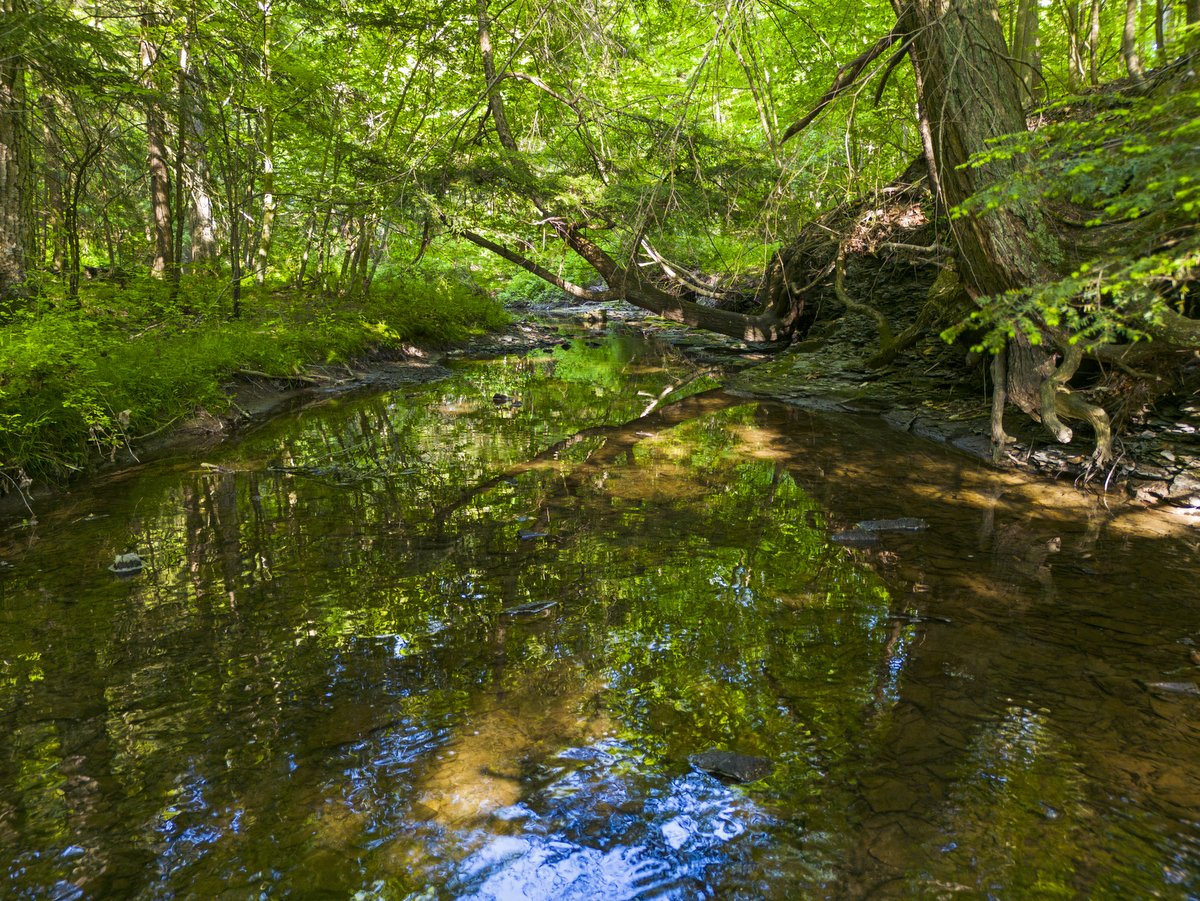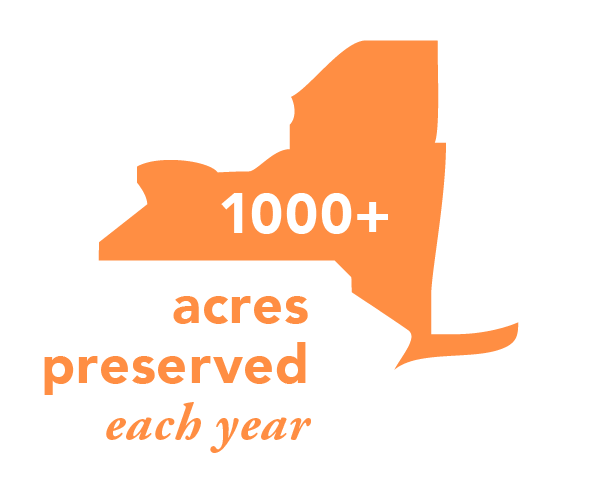The Finger Lakes Land Trust (FLLT) and New York State Department of Environmental Conservation (DEC) recently announced the permanent protection of 86 acres in the Skaneateles Lake watershed through the use of a conservation easement.
Protection of the property will safeguard the drinking water supply for the city of Syracuse and neighboring communities. DEC’s Water Quality Improvement Project (WQIP) Program awarded FLLT $1.69 million to support four source water protection projects, including the easement.

Photo: Matt Champlin
“In the Skaneateles watershed and across New York State, DEC, and our partners are committed to protecting drinking water at the source,” DEC Commissioner Basil Seggos said. “Through our collaboration with the Finger Lakes Land Trust and local landowners, we are helping protect the watershed for a critical drinking water source that serves an estimated 192,000 people in Central New York.”
“Completion of this project is a significant win for Skaneateles Lake and the drinking water supply for the City of Syracuse,” said Finger Lakes Land Trust Executive Director Andrew Zepp. “The conservation easement will provide for enhanced buffers to the lake and we are grateful to the landowners and New York State for their support and partnership.”
Owned by Pat and Jessica Danial, Fox Run Farm contains 2,070 feet along Shotwell Brook, which drains to Skaneateles Lake, as well as 1,430 feet along an unnamed tributary. The easement includes an 18-acre environmental protection zone that will buffer the two streams and filter potential contaminants from entering nearby Skaneateles Lake.
“We’re excited to announce our support for the Finger Lakes Land Trust’s hard work in protecting the Skaneateles Lake watershed,” said landowner Pat Danial. “Through the placement of a conservation easement on our farm, we’re taking another small step towards ensuring the long-term health and vibrancy of the area. As members of the local community, we feel a deep responsibility to preserve the natural beauty of our lake and to safeguard its resources for future generations.”
Conservation easements are voluntary legal agreements that permanently limit future land use in order to protect the land’s conservation value. Lands subject to conservation easements remain in private ownership, on local tax rolls, and available for traditional uses such as farming and hunting.
New York’s Commitment to Clean Water
The WQIP Program is a competitive, reimbursement grant program that funds projects that directly improve water quality or aquatic habitat, or protect a drinking water source. DEC has announced more than $65 million WQIP grants for 51 land acquisition projects to date. In addition to land acquisition projects for source water protection, WQIP grants are awarded for wastewater treatment improvement, non-agricultural nonpoint source abatement and control, salt storage, aquatic connectivity restoration, and marine district habitat restoration. Visit the WQIP website for more information.
New York continues to increase its investments in clean water infrastructure. Most recently, the 2023-24 Enacted Budget includes the $500 million in clean water funding proposed by Governor Hochul in January and brings New York’s total clean water infrastructure investment to $5 billion since 2017. In April, Governor Hochul made the first funding announcement advanced under the Clean Water, Clean Air, and Green Jobs Environmental Bond Act of 2022. A total of $425 million is available – $200 million in Environmental Bond Act funds and $225 million in funding from the State’s existing Water Infrastructure Improvement and Intermunicipal Grant programs.
To leverage these investments and ensure ongoing coordination with local governments, the Governor created Community Assistance Teams to provide proactive outreach to small, rural, and disadvantaged communities to help them access financial assistance to address their clean water infrastructure needs. The initiative was recently launched and outreach meetings are underway. For more information, go to https://efc.ny.gov/CAT.

